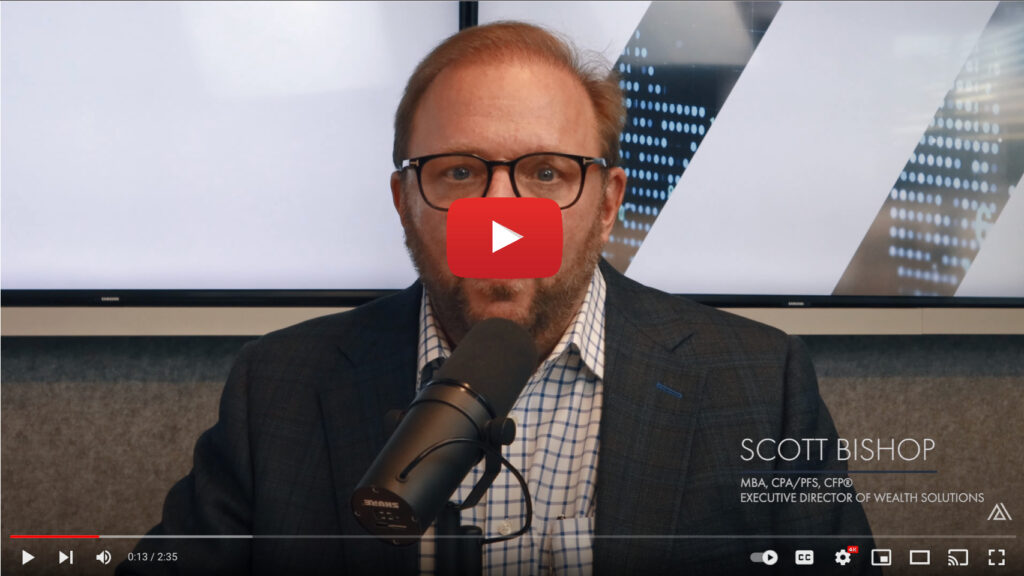Published on: 01/05/2023 • 6 min read
New Year’s Resolutions – Get Your Finances and Financial Plan in Order Part 2

January 3, 2023

Many of you made new year’s resolutions to eat healthier, lose weight and be better to your family. For those of you reading this newsletter, I bet you at least thought about making some Financial “New Year’s Resolutions”. Your friends at Avidian Wealth Solutions want to help you reach your financial resolutions and goals. With that in mind, we updated our year-end tax and financial planning checklists and a new one outlining thoughtful ways to keep yourself accountable (and your plan on track) as it relates to your investment plan:
- Year-end Tax Planning Checklist
- Year-end Tax and Financial Planning Ideas
- Investment Planning to Accountability
Now that we have begun 2023, it is a great time to get organized and start next year on the right foot with the right plan! Below, I have listed some steps that you can take to get your finances ready by year-end. First off, read this linked article to see if you are on track given your stage in life: Proper Planning to Avoid Money Worries. Once you see where you are, you may find the following helpful in making your New Year’s Resolutions become a reality!
Getting Started/Budgeting
Start to get your budget under control
a. Review Credit Card Statements or Bank/Debit Card Spending
b. Start using a personal finance tool such as Quicken or Mint to track expenses
Give yourself a weekly “cash budget” vs. going to ATMs (and stop using non-free ATMs)
Determine a Strategy to pay down debt (and work it into your budget)
a. High-Interest non-deductible
b. High-Interest deductible
c. Lower interest
Feel good about yourself…find a way to pay off the lowest balances first, and DON’T CHARGE WHAT YOU CAN’T PAYOFF GOING FORWARD!
Review your FICO Score – see if you can get it improved (myfico.com or other services)
Plan for discretionary spending items (like vacations and Christmas spending) and work those into your budget NOW vs. at the time of the event.
Plan to save for longer-term goals (like a new house or vacation house)
Consider refinancing your house if not done already (keep an eye on interest rates – up almost 0.50% in the last several weeks).
Update your W4 if you are getting too large of a refund or had a surprise tax owed.
Review the credit cards you are using to consider:
a. Lower interest rates if you carry a balance (see FICO comment as well)
b. The Rewards offered – based on usage, more rewards/miles?
c. 0% Interest on balance transfers – but track and be careful!
Retirement/Investment:
In your budgeting, don’t forget to determine what you can put into the employer plan
a. At least do match
b. If not maxing, increase by 1%-2% and work into the budget
Medicare (and ObamaCare) Open Enrollment – are you in the right plan for your needs (healthcare utilization, prescription drugs, change in family situation).
Employer Open Enrollment for Benefits – Have you picked the right plans?
a. Enough Life Insurance
b. 401k investments and deferral
c. Does HSA Plan make sense?
Review Your Portfolio – Has it performed to your goal “Hurdle Rate” and benchmark (not necessarily S&P 500)? Given the outlook, are you properly allocated to stocks, bonds, or cash? This a great time to review your Portfolio’s Asset Allocation.
Determine, if available, Roth vs. Traditional IRA/401k (lower the tax bracket, more Roth makes sense)
If you are in retirement and/or low-income year, consider a Roth Conversion. This would need to be done by December 31st.
Social Security Maximization Strategies (as you approach 62, FRA, and age 70) – maxing with spousal and/or survivor’s benefits.
Meet with a financial planner to see where you are in terms of your retirement (are you on track) – meet with a fiduciary (not just a product pusher), fee-based, CFP, CPA/PFS, etc.
a. On Track – Change savings, Hurdle Rate, Goals
b. Pension/Social Security Maximization
c. Risk Management
d. Retirement Budget
e. Optimized Tax Distribution Plan in Retirement (like Avidian Wealth’s R.I.T.E Plan in the Retirement Survival Guide (just updated to Volume II in 2021)
College:
Start a college savings plan
a. UTMA, 529 Plan, Pre-Paid college plans – START EARLY
Review and ensure year-end 529 Plan distributions (match expenses to distributions)
Review available Tax Credits/Deductions (many have income limitations)
a. Student Loan interest
b. American Opportunity Credit
c. Lifetime Learning Credit
d. https://www.irs.gov/individuals/education-credits-questions-and-answers
Research available grants (or other financial aid).
Other Planning – Tax, Estate and Risk Management:
Review your Estate Plan and get a will done – best if with an attorney, but if you can’t afford an attorney right now, consider online services like LegalZoom (it is better than nothing).
Sit with your insurance agent:
a. Do you have enough life insurance (when considering work)?
b. Have you considered or do you have disability and long-term care Insurance?
c. Are there in your property-casualty coverages (car, home, umbrella, professional, etc.)?
Review your 2020 Tax Return and Meet with Tax Team:
a. Review the Tax Planning Checklist with your CPA and Financial Advisor
b. Consider year-end Charitable Giving – if needed and desired consider Donor Advised Fund (especially if you want to give a lot for tax planning and have not identified charities)
c. Review your portfolio’s tax situation and consider Year-end Tax Loss Harvesting and “Tax Placement” changes between your retirement and taxable accounts
Consider Some Tax-Planning related to offsetting capital gains (or depreciation recapture in real estate) through utilizing
a. Qualified Opportunity Zones (any capital gains)
b. 1031 Exchanges (real estate only)
Disclaimer:
Financial Planning and Investment Advice offered through Avidian Wealth Solutions (Avidian), a registered investment advisor. Avidian does not provide tax or legal advice and the information presented here is not specific to any individual’s personal circumstances. To the extent that this material concerns tax matters or legal issues, it is not intended or written to be used, and cannot be used, by a taxpayer for the purpose of avoiding penalties that may be imposed by law. Each taxpayer should seek independent advice from a tax professional based on his or her individual circumstances. These materials are provided for general information and educational purposes based upon publicly available information from sources believed to be reliable—we cannot assure the accuracy or completeness of these materials. The information in these materials may change at any time and without notice. Use only at your own peril.
Please read important disclosures here
Get Avidian's free market report in your inbox

Schedule a conversation
Curious about where you stand today? Schedule a meeting with our team and put your portfolio to the test.*